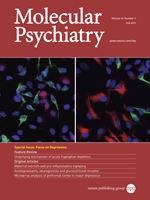
An academic journal or scholarly journal is a periodical publication in which scholarship relating to a particular academic discipline is published. They serve as permanent and transparent forums for the presentation, scrutiny, and discussion of research. They nearly universally require peer review for research articles or other scrutiny from contemporaries competent and established in their respective fields.

Google Scholar is a freely accessible web search engine that indexes the full text or metadata of scholarly literature across an array of publishing formats and disciplines. Released in beta in November 2004, the Google Scholar index includes peer-reviewed online academic journals and books, conference papers, theses and dissertations, preprints, abstracts, technical reports, and other scholarly literature, including court opinions and patents.

Randy Wayne Schekman is an American cell biologist at the University of California, Berkeley, former editor-in-chief of Proceedings of the National Academy of Sciences and former editor of Annual Review of Cell and Developmental Biology. In 2011, he was announced as the editor of eLife, a new high-profile open-access journal published by the Howard Hughes Medical Institute, the Max Planck Society and the Wellcome Trust launching in 2012. He was elected to the National Academy of Sciences in 1992. Schekman shared the 2013 Nobel Prize for Physiology or Medicine with James Rothman and Thomas C. Südhof for their ground-breaking work on cell membrane vesicle trafficking.
The Archives of Sexual Behavior is a bimonthly peer-reviewed medical journal in sexology. It is the official publication of the International Academy of Sex Research.

PLOS One is a peer-reviewed open access mega journal published by the Public Library of Science (PLOS) since 2006. The journal covers primary research from any discipline within science and medicine. The Public Library of Science began in 2000 with an online petition initiative by Nobel Prize winner Harold Varmus, formerly director of the National Institutes of Health and at that time director of Memorial Sloan–Kettering Cancer Center; Patrick O. Brown, a biochemist at Stanford University; and Michael Eisen, a computational biologist at the University of California, Berkeley, and the Lawrence Berkeley National Laboratory.

The Social Sciences Citation Index (SSCI) is a commercial citation index product of Clarivate Analytics. It was originally developed by the Institute for Scientific Information from the Science Citation Index. The Social Sciences Citation Index is a multidisciplinary index which indexes over 3,400 journals across 58 social science disciplines – 1985 to present, and it has 122 million cited references – 1900 to present. It also includes a range of 3,500 selected items from some of the world's finest scientific and technical journals. It has a range of useful search functions such as 'cited reference searching', searching by author, subject, or title. Whilst the Social Sciences Citation Index provides extensive support in bibliographic analytics and research, a number of academic scholars have expressed criticisms relating to ideological bias and its English-dominant publishing nature.

Nova Science Publishers is an academic publisher of books, encyclopedias, handbooks, e-books and journals, based in Hauppauge, New York. It was founded in 1985. Nova is included in Book Citation Index and scopus-indexed. A prolific publisher of books, Nova has received criticism from librarians for not always subjecting its publications to academic peer review and for republishing public domain book chapters and freely-accessible government publications at high prices.
Genes, Brain and Behavior is a peer-reviewed scientific journal covering research in the fields of behavioral, neural, and psychiatric genetics. It is published by Wiley-Blackwell on behalf of the International Behavioural and Neural Genetics Society. The journal was established in 2002 as a quarterly and is currently published monthly. G2B is a hybrid open access journal, but two years after publication all content is available for free online.

The Society for Scientific Exploration (SSE) is a group committed to studying fringe science. The opinions of the organization in regard to what are the proper limits of scientific exploration are often at odds with those of mainstream science. Critics argue that the SSE is devoted to disreputable ideas far outside the scientific mainstream.

Molecular Psychiatry is a peer-reviewed scientific journal published by Nature Publishing Group. It covers research in biological psychiatry.
The Scientific World Journal is a peer-reviewed scientific journal covering fields in the life sciences ranging from biomedicine to environmental sciences. It was established in 2001 and is published by Hindawi Publishing Corporation. The journal was delisted in the 2015 Journal Citation Reports because of "anomalous citation patterns".

Science Translational Medicine is an interdisciplinary biomedical journal established in October 2009 by the American Association for the Advancement of Science. It publishes basic, biomedical, translational, and clinical research about human diseases. According to Web of Science, the journal has a 2023 impact factor of 15.8
The Canadian Journal of Psychiatry/La revue canadienne de psychiatrie is a monthly peer-reviewed medical journal published originally by the Canadian Psychiatric Association. Since January 2015 it has been published by SAGE. It covers all aspects of psychiatry. Articles are published in English or French, with abstracts in both languages. The journal publishes original research papers, systematic reviews, book reviews, letters to the editor, and official position papers, position statements, policy papers, and clinical practice guidelines of the Canadian Psychiatric Association.
The Journal of Child Psychology and Psychiatry is a peer-reviewed scientific journal covering both child and adolescent psychology and psychiatry providing an interdisciplinary perspective to the multidisciplinary field of child and adolescent mental health, though publication of high-quality empirical research, clinically-relevant studies and highly cited research reviews and practitioner review articles.
Frontiers Media SA is a publisher of peer-reviewed, open access, scientific journals currently active in science, technology, and medicine. It was founded in 2007 by Kamila and Henry Markram. Frontiers is based in Lausanne, Switzerland, with offices in the United Kingdom, Spain, and China. In 2022, Frontiers employed more than 1,400 people, across 14 countries. All Frontiers journals are published under a Creative Commons Attribution License.

Predatory publishing, also write-only publishing or deceptive publishing, is an exploitative academic publishing business model, where the journal or publisher prioritizes self-interest at the expense of scholarship. It is characterized by misleading information, deviates from the standard peer-review process, is highly non-transparent, and often utilizes aggressive solicitation practices.
The European Journal of Endocrinology is a monthly peer-reviewed medical journal covering endocrinology with a focus on clinical and translational studies, research, and reviews in paediatric and adult endocrinology. It is the clinical journal of the European Society of Endocrinology. The editor-in-chief is Wiebke Arlt. The journal has been published by Bioscientifica since 1999.

The idea and practise of providing free online access to journal articles began at least a decade before the term "open access" was formally coined. Computer scientists had been self-archiving in anonymous ftp archives since the 1970s and physicists had been self-archiving in arXiv since the 1990s. The Subversive Proposal to generalize the practice was posted in 1994.
In academic publishing, a sister journal or companion journal is a newer academic journal affiliated with an established journal in the same field. These journals sometimes follow the "cascade or transfer model," whereby they publish academic papers rejected by the older, more prestigious journal in the publisher's portfolio. While the original journal often requires a subscription to read, these journals tend to be open access. This business model allows publishers to recoup the editorial costs expended in the peer review process undergone at the original journal that ultimately resulted in a rejection and monetise the scholar's work by means of an article processing charge. Scholars, in turn, benefit, as they must only undergo one peer review process. A sister journal is not to be confused with a mirror journal, which is an open access journal that runs parallel to an established subscription journal, with which it often shares a similar name and largely identical editorial team.
Bryan L. Roth is the Michael Hooker Distinguished Professor of Protein Therapeutics and Translational Proteomics, UNC School of Medicine. He is recognized for his discoveries and inventions in the general areas of molecular pharmacology, GPCR structure, and function and synthetic neurobiology. He is a member of the American Academy of Arts and Sciences (AAAS) and the National Academy of Medicine (NAM)










